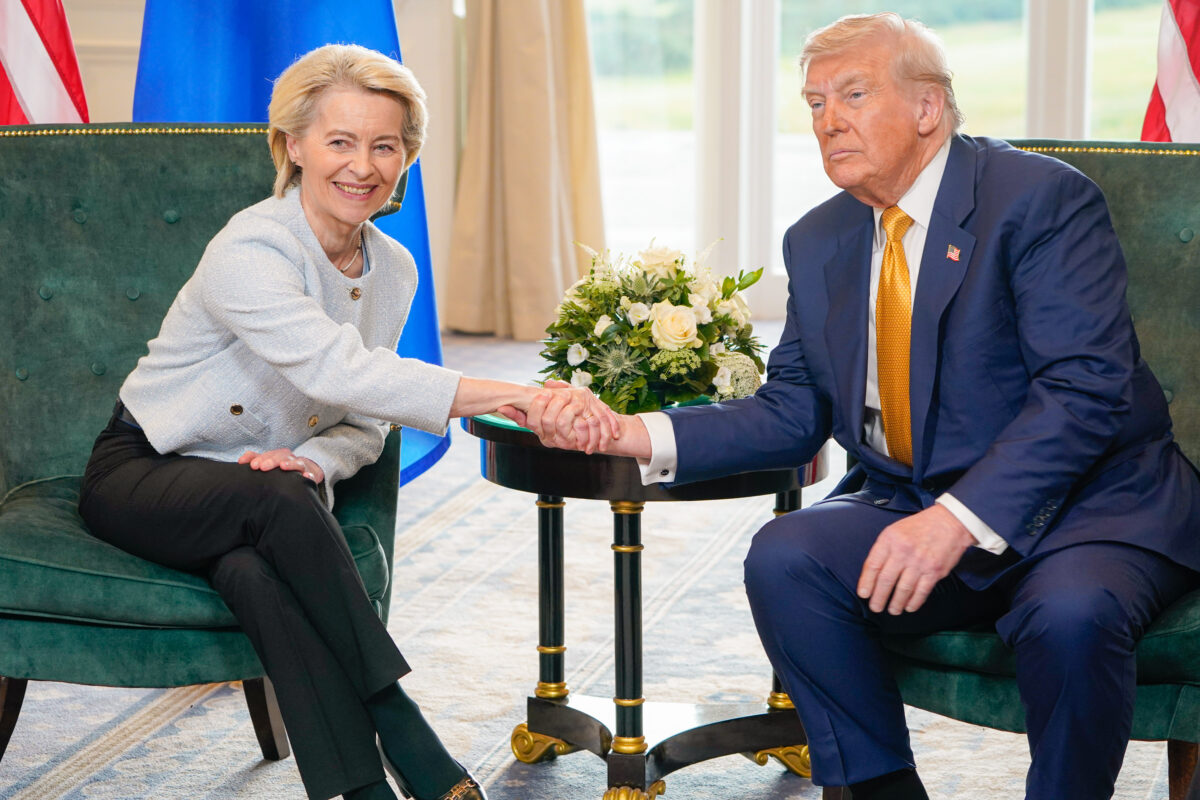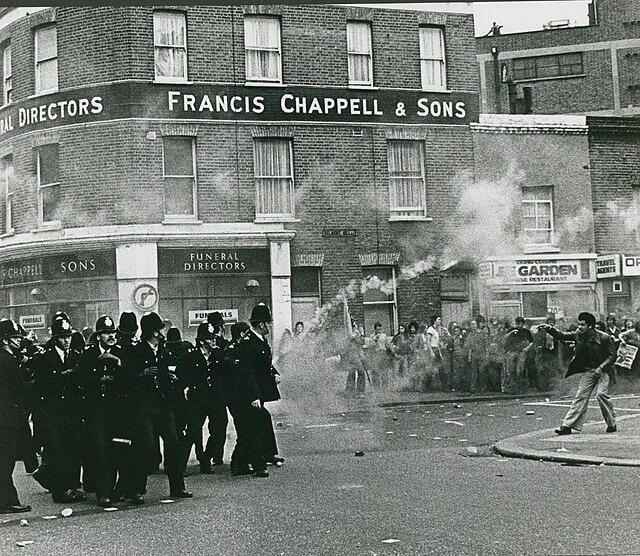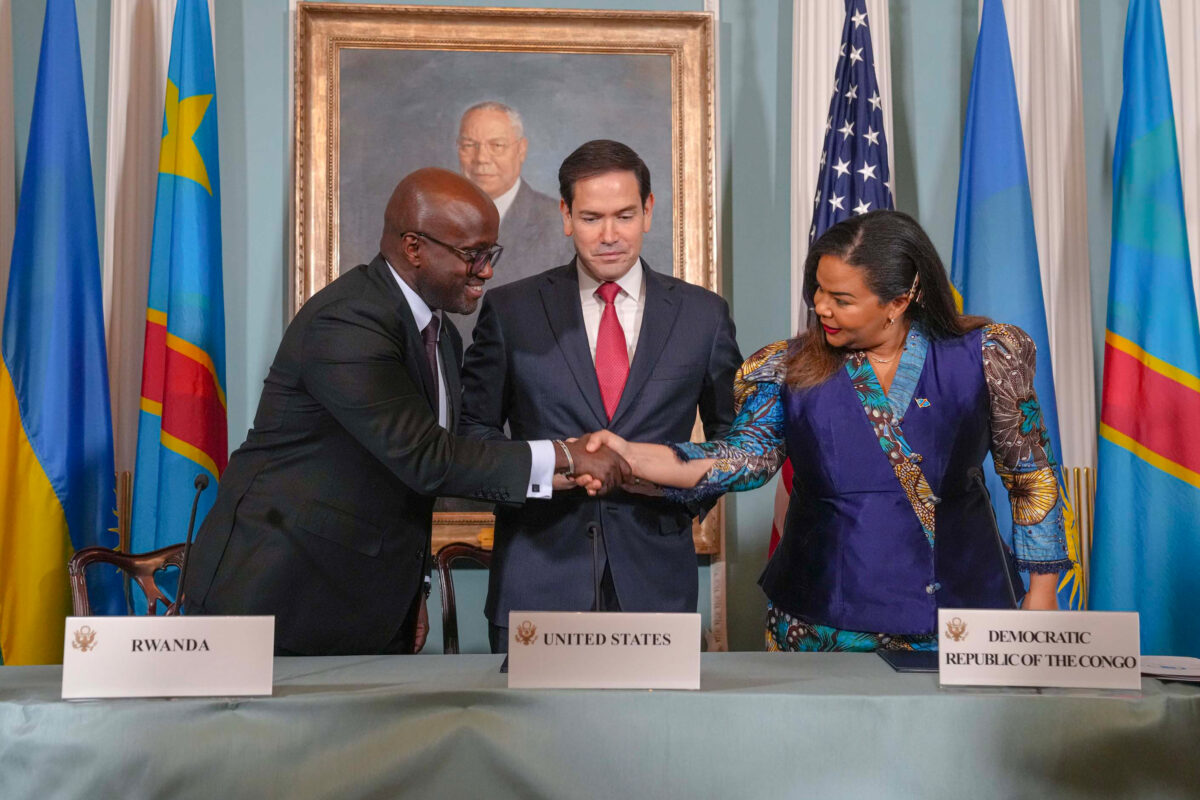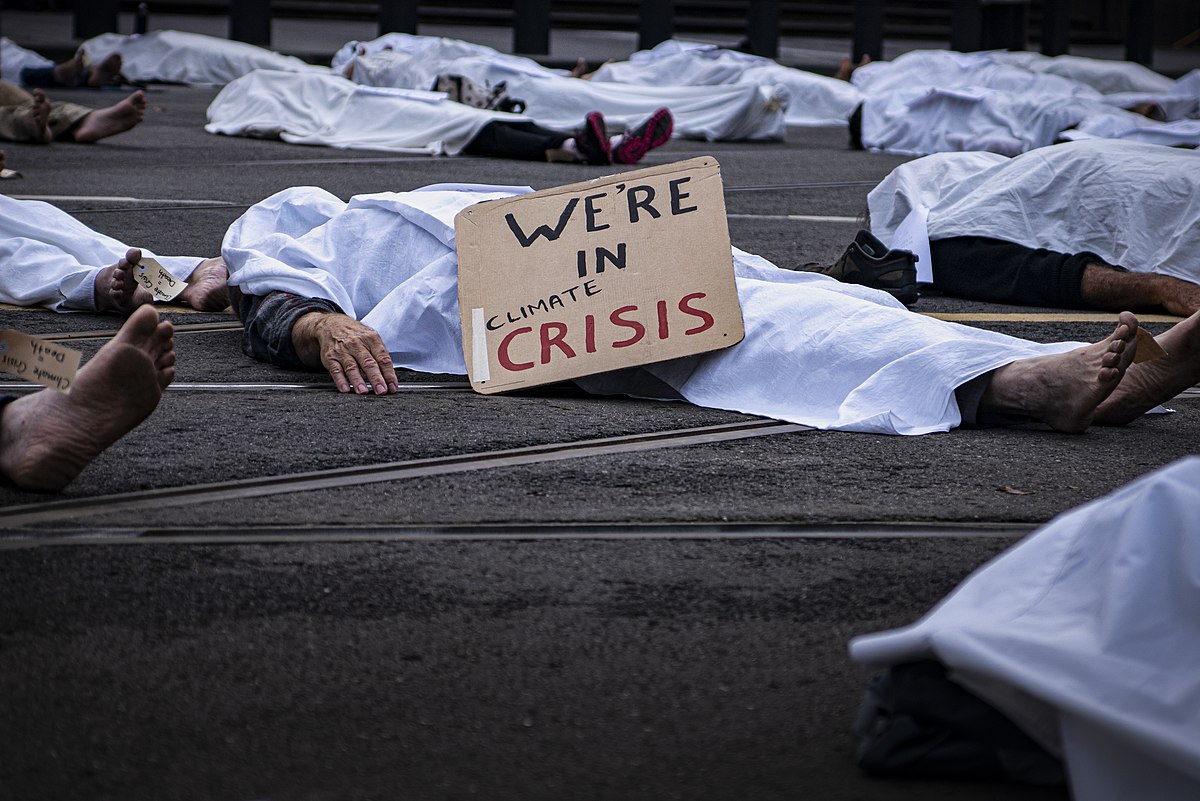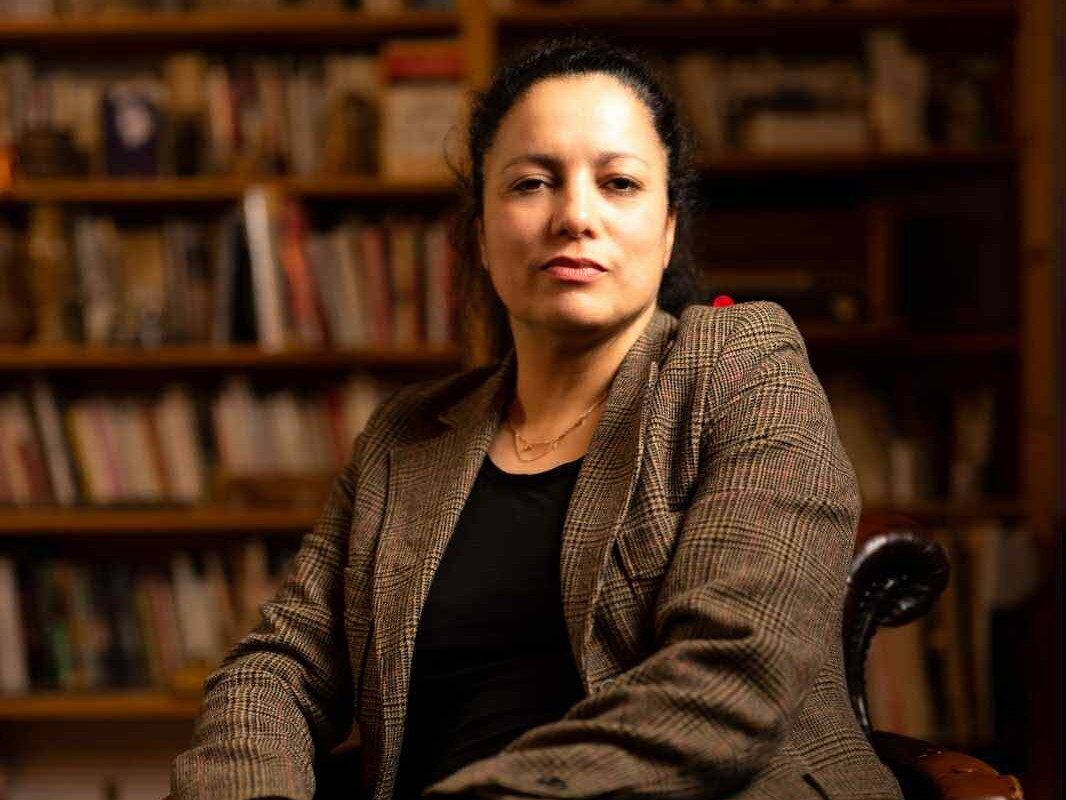Immediate reactions
In the latest round of tariff mud-wrestling, Donald Trump ate the EU’s lunch – no TACOs for von der Leyen. Reactions to the agreement announced on Sunday have been widely interpreted as a capitulation by the EU to the brazen bullying tactics of Donald Trump. The French PM Francois Bayrou called it a dark day for Europe. Economics commentator Christian Odendahl of The Economist took a more realist position on Bluesky, amplifying a range of voices that stress both the silver linings and the institutional weakness of the EU that led to the capitulation in the first place. Martin Sandbu of the Financial Times sounded utterly aghast at the way the EU feebly yielded even though he believes the EU had real leverage in negotiations with Trump. Perhaps the most pertinent statement, and one that frames this article on the deal, came from Nicolai von Ondarza, a think-tank wonk at SWP and Chatham House:
“I think European leaders – both national and in the EU – are underestimating what it will do to their publics to be humiliated by Trump.
Like the NATO summit and Rutte’s ‘Daddy’ strategy, maybe the outcome could have been worse. But losing pride and being humiliated is also a price that is paid.”
Asking the right questions about the trade deal is as important as formulating coherent answers to the ones we pose. We can choose to focus on the economic ramifications of the deal and spend our limited energy amplifying the negative impacts. However, in my view, this is a fool’s errand for two reasons.
First, this trade deal, like any other deal with a capricious organism like Trump, is not bound to last. It is a framework agreement, with details to be ironed out over an indefinite period. Estimating its long-term impacts is therefore impossible.
Second, retail politics is a dead end for the radical left — not because of a shortage of popular offers to the public, but rather due to a lack of any credibility to deliver them. An alternative approach, which I favour, is to forget the economics altogether and to focus on narrativising the EU’s capitulation itself. von Ondarza and Sandbu have their finger on the pulse when they choose to emphasise the political and moral ramifications of the deal more than any discussion of the numbers.
The bigger picture
Donald Trump has tried to impose tariffs in various forms on trade partners all over the world. What began with the pure festival of chaos that was the Liberation Day tariffs (a mere four months ago in April) has ended with a massive political victory for him, with a slew of favourable bilateral trade agreements with Japan, the UK, and now the EU. Favourable, not in an economic sense, but in a political one. Many people believed that the stock and the bond market chaos unleashed by Trump’s yo-yo trade policy would discipline him into returning to a status quo ante. No less than Adam Tooze warned of an epic crisis on the horizon. And yet, today, the stock markets are back to growing across the board. Capital is in an ebullient mood. Does this mean that there is no stopping the Trump juggernaut?
If Donald Trump is winning, it is not because of his own genius. He telegraphed his strategy plainly: bully people into submission, retreat momentarily when markets panicked, and ram the resolve of US trade partners again when markets calmed. Ironically, the TACO trade incensed him enough to keep trying, while simultaneously creating a unique opportunity for market movers to make an easy buck on the oscillations he was engendering with his tariff pronouncements. Like malleable dogs, Trump trained the capitalist class to stay calm when he barked, thereby removing a key obstacle to his objectives.
In turn, he moderated his ambitions on the final level of tariffs, settling on a bargaining position around 30 percent with the EU, which eventually accommodated itself to 15 percent as the headline figure (exceptions and carve-outs notwithstanding). Disunited, fearful of economic pain and political instability, lacking both resolve and intelligence, each major US ally bent the knee to his caprice. It needn’t have ended this way.
We radical leftists must take a moment to sit with the momentous change ushered in by this World Wrestling Entertainment hall-of-famer. Within seven months, free trade as a hegemonic concept undergirding world economics has collapsed. The sacred cow of frictionless movement of goods and services between major trading powers has had its entrails splattered over the floor of every stock exchange. But that is not the most significant blow Trump has struck. In fact, this one may end up doing more harm to the US than to Europe. Tariffs are a blunt tax on US consumers and will suppress economic demand, even if exporters try to soften the impact by reducing prices. Trump has effectively demoted allies and turned them into vassals in a true sense. He has forced them to stitch their fates to the whims of the US with their own skins.
The list of humiliations
Among the humiliations Trump has forced on the EU is a commitment to purchase $750 billion worth of energy imports from the US over the course of this presidential term, as well as a pledge to invest $600 billion. For context, the EU imported €76 billion worth of US energy last year out of a total bill around €375 billion. There aren’t enough pies in the sky to feed so many fantasies. This fantasy, should it even come partially to fruition, would make the EU an order of magnitude more dependent on fossil fuels from the US than it ever was on Russia. This comes hot on the heels of NATO countries being forced to commit to a 5% GDP defence spending target – a more than twofold increase of current levels. Combined with a completely supine foreign policy vis à vis Gaza and China, and a persistently unaligned strategy vis à vis Ukraine (something highly pertinent to European interests), the EU seems resigned to accepting whatever Trump wants.
The rationale for these humiliations seems to be couched in 4D chess-style arguments: that Europe has retained regulatory autonomy on areas such as big-tech and AI; that the German car industry has been shielded; that the pharmaceutical sector has been spared (though on pharma and semiconductors they have merely kicked the can down the road). These are the self-soothing lullabies of economistic wonks. Trump won because he played politics while the EU, Japan, and the UK played competitive Microsoft Excel. They caved to the extortioners’ demands, hoping that it would put an end to the extortion. Have they forgotten there are still 41 months left of the Trump presidency?
Ramifications and strategies for the left
The EU has comprehensively demonstrated how weak it is, not as an economic bloc, but rather as a political one. A unitary executive led by a mad pretend-king appears far more effective at achieving its objectives than a supposedly democratic bloc of European nations united by high-minded liberal enlightenment ideas. Professional commentary suggests that it was the internal discord among member states that led to a complete loss of appetite for a fight with daddy. But the deeper malaise is this: the Commission is designed as an A-tier retirement home for one-time political heavyweights ready to be put out to pasture, unsuited for the demands of world-historical political contestation. Perry Anderson’s withering criticisms — of its bloated, impenetrable rule book (over 90,000 pages long and accessible only to organised corporate lobbyists), and its structural inflexibility replete with perverse incentives against reform — are being grimly vindicated by this capitulation.
There are grim resonances between the EU’s political inefficacy and the Polish–Lithuanian Commonwealth, which repeatedly succumbed to internal divisions in its battles with Russia and Sweden, eventually leading to three partitions of Poland. Germany is protective of its manufacturing industry and is effectively wedded to US patronage, as are several Eastern European countries. It is unsurprising such a diffuse set of interested parties could not forge alliances either within the EU or externally (for example with China or the Global South) to counter the Trump threat.
The biggest losers are most likely the affluent countries of Western Europe, now paying the price for decades of political inaction. Having treated the Eastern bloc of the EU as poor cousins who should be happy to be invited to their weddings, these countries helped foster a reactionary backlash that has hollowed out the EU from within. At the same time, this dynamic has deepened Europe’s dependence on the US, particularly in relation to the threat posed by Russia. The failure of Western Europe to engage in common development through Eurobonds; the austerity imposed on successive sovereign governments at the whims of Germany, Austria, and the Benelux nations; the visionless leadership of the European Commission; and the total unaccountability of the parliament in Brussels have all contributed to the EU becoming a rudderless behemoth, adrift in stormy seas.
For the radical left, this crisis of confidence within the EU presents a chance to promote solidarity of European nations against an onslaught from a vindictive bully. Common foes are the basis of fruitful alliances, and therefore, the left must argue for ecologically-driven economic development as a guard against permanent dependence on a decadent order led by the US. What is essential is to build an economically invested constituency for this vision across the bloc, a project that will require sacrifice by wealthier European nations to develop nations on the periphery.
This will entail helicoptering money into poorer countries to develop solar panel plants, wind turbines, electric buses and bikes, and trains and trams—all funded through commonly securitised debt at the European level, alongside increased taxation on European wealth. It will also mean arguing for uncomfortable ideas, such as the creation of a common European military apparatus that reduces costs and improves Europe’s defensive capabilities, thereby lessening its reliance on the US. But it also opens an opportunity to argue for expanded immigration as a way to address sectoral labour crises across the bloc. Who will build the houses, man the new factories, care for the young, the old, and the sick—if not migrants, whose arrival will help usher in a meaningful form of European sovereignty in an increasingly cut-throat geo-economic reality?
None of these ideas is an easy sell. Many of them are deeply uncomfortable terrain for the radical left, and the timescales for them to become a new consensus stretch across decades. But that, ultimately, is what thinking big is all about.
The overarching lesson that the left must draw from this moment is the importance of political consolidation, and the costs that come with it. As Perry Anderson argued in Lineages of the Absolutist State, the example of the Polish–Lithuanian Commonwealth showed how the aristocracies of Russia and Prussia aligned themselves behind empowered monarchs in response to the threat of an ascendant Sweden. Today, the EU finds itself pulled between an autocratic, ascendant China and a once-hegemonic US on a self-indulgent bender, firing its guns in all directions and now wont to terrorising its allies as much as its foes.
No single European country can act as a bulwark, for better or worse, against this reality. We can either treat European nationalism as just another species of nationalism’s evils, or we can attempt to imagine it as a form of limited internationalism – a bitter kind of intellectual self-contortion. The left, as constrained as it is, requires innovative strategies that can forge a new set of received wisdoms, rather than recycling the stale, if noble, tactic of arguing for straightforwardly good things in the absence of a common narrative. Donald Trump’s bullying may finally present a ready-made opportunity, one that favours social democrats more than radical leftists, but only if we let it.
